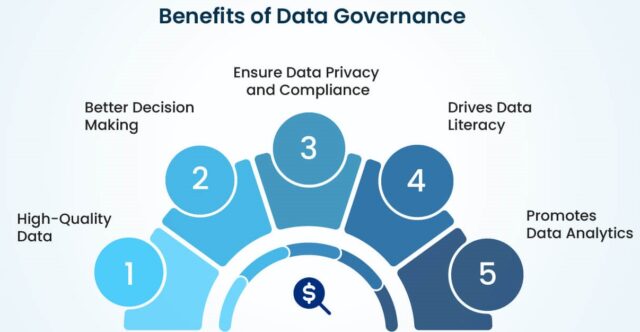A well-known fact about data is that it is a crucial Asset in an organization when managed appropriately. Data governance helps organizations manage data appropriately. Some customers say data governance is an optional best practice but not a mandatory implementation strategy.
Then, ask your customer a few questions:
- Is your data reliable or trustworthy?
- Is your data compliant?
- Is your business protected?
- Is your data holding you back from making business decisions?
- Why are You Taking a Risk?
Let’s explore why data governance is no longer optional in today’s data-driven world.
Common Challenges with Organizational Data
The world creates millions of terabytes of data every single day. However, 80% of enterprise data remains poor quality, unstructured, inaccurate, or inaccessible, leading to poor decision-making, compliance risks, and inefficiencies.
Poor data quality impacts businesses and costs millions of dollars annually due to lost productivity, missed opportunities, and regulatory fines.
Learn How Data Governance Impacts Organizations
1. Improved Data Quality & Decision-Making
50% of data scientists’ time is wasted cleaning and organizing messy data instead of deriving insights. Without governance, businesses rely on outdated, inconsistent, or redundant data, leading to poor decisions.
A data governance program ensures:
- Data accuracy, consistency, and reliability across all departments
- Standardized data entry, storage, and usage policies
- Reduction in data duplication, errors, and conflicting information
2. Regulatory Compliance & Risk Mitigation
Companies face significant penalties for violating data regulations like GDPR, CCPA, and HIPAA, including substantial fines, potential criminal charges, and reputational damage. They are paying over billions of $ in fines for data breaches and non-compliance.
Data governance programs ensure:
- Proper data classification and retention policies
- Compliance with industry regulations and security standards
- Clear data ownership and accountability
3. Enhanced Data Security & Protection Against Breaches
Most small businesses shut down within six months of a data breach, and the average cost of a data breach is now $4.45 million.
A data governance framework can help:
- Define who has access to what data and when
- Encrypt and protect sensitive customer and financial data
- Establish incident response protocols for breaches
4. Increased Operational Efficiency & Cost Savings
Bad data costs enterprises 30% of their revenue annually. Inefficient data management leads to:
- Wasted employee hours searching for or fixing data
- Siloed departments working with conflicting data
- Delays in automation, AI, and analytics
Data governance programs ensure:
- A single, authoritative source of truth for all teams
- Elimination of redundant and duplicate data entries
- Streamlined AI and analytics workflows
5. Breaking Down Data Silos Across Departments
Most executives say their teams make decisions based on siloed data, which creates inefficiencies, misaligned strategies, and lost revenue opportunities.
A data governance program can ensure:
- A common data language across business units
- Seamless integration between data platforms (ERP, CRM, Cloud)
- Cross-functional collaboration for AI and automation projects
6. Better Risk Management & Disaster Recovery
93% of companies that experience significant data loss without backup shut down within one year. Without governance, businesses struggle to recover critical data after a breach or system failure.
A governance program helps:
- Track data lineage for accountability
- Ensure data backups and disaster recovery protocols
- Identify high-risk data and apply extra security layers
7. AI & Digital Transformation Readiness
85% of AI projects fail due to poor data quality. AI models require structured, accurate, and unbiased data, which is impossible without governance.
A strong governance program:
- Optimizes data for AI, ML, and predictive analytics
- Prevents bias, inaccuracies, and redundancies in AI models
- Ensures data is FAIR (Findable, Accessible, Interoperable, and Reusable)

Conclusion
Without Data Governance
- Data turns from an asset into a liability
- Inaccurate analytics leads to Poor decision-making
- Security risks lead to Compliance violations & data breaches
- Operational inefficiencies lead to Wasted resources & duplicated efforts
With Data Governance
- Trustworthy, accurate data for better decisions
- Compliance with GDPR, CCPA, HIPAA, and more
- Seamless collaboration across teams
- Scalability as your business grows
A structured data governance approach turns enterprise data into a competitive advantage. In today’s dynamic business environment, data governance is not just a regulatory requirement—it’s a strategic advantage.

